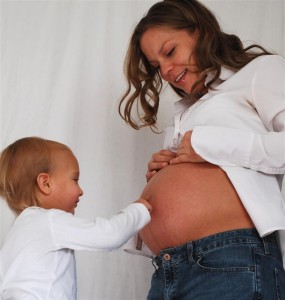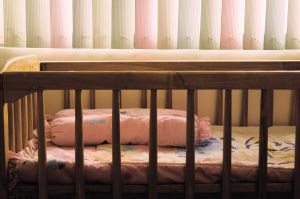I spend a lot of time writing and speaking to people about the values I hold as a person who practices attachment/responsive parenting. I try to use facts and logic to respectfully encourage others to research their parenting decisions and embrace ideas that might have been uncomfortable a generation ago, such as full-term breastfeeding and breastfeeding in public, leaving our sons intact, responding to our children with love and respect, and realizing the detrimental effects of physical discipline.
Looking through some recent pictures of my son (Kieran), I realized that we (as parents who share these values) might be doing more just by modeling these concepts to our children. Of course I will continue to extol the value of full-term breastfeeding, and I will defend every mother’s right to nurse in public when, where and how she wants to. But I take immense comfort in the fact that my son might not need to fight these same battles because we are normalizing it for his generation, simply by living.
Here are some examples of how the Eight API Principles are being normalized for my son every day:
Prepare for Pregnancy, Birth, and Parenting

My sister recently had a baby (this picture is of Kieran with my sister only weeks before she gave birth). Throughout her pregnancy, we talked with Kieran about how babies grow in their mama’s tummies. He loved feeling my sister’s stomach, and he often talked about the baby growing in his own belly.
Someday, I hope that he will experience the pregnancy of his own little brother or sister. I look forward to his thoughts on all of the changes that will occur in my body. We will prepare him for his sibling’s homebirth and allow him to participate as fully as is practical and comfortable for everyone.
Continue reading “Modeling AP Values”
 Sometimes, it is me who she’s upset with.
Sometimes, it is me who she’s upset with.


 Now imagine how you’d feel at the end of such a day. After being bossed around and having all your decisions made for you, wouldn’t you want to flex your muscles and have a say?
Now imagine how you’d feel at the end of such a day. After being bossed around and having all your decisions made for you, wouldn’t you want to flex your muscles and have a say? punishing, forgoing a career to stay at home, and taking the time to
punishing, forgoing a career to stay at home, and taking the time to  no backs. He has now fallen off the benches multiple times and I have tried everything to keep him from standing on them.
no backs. He has now fallen off the benches multiple times and I have tried everything to keep him from standing on them.
